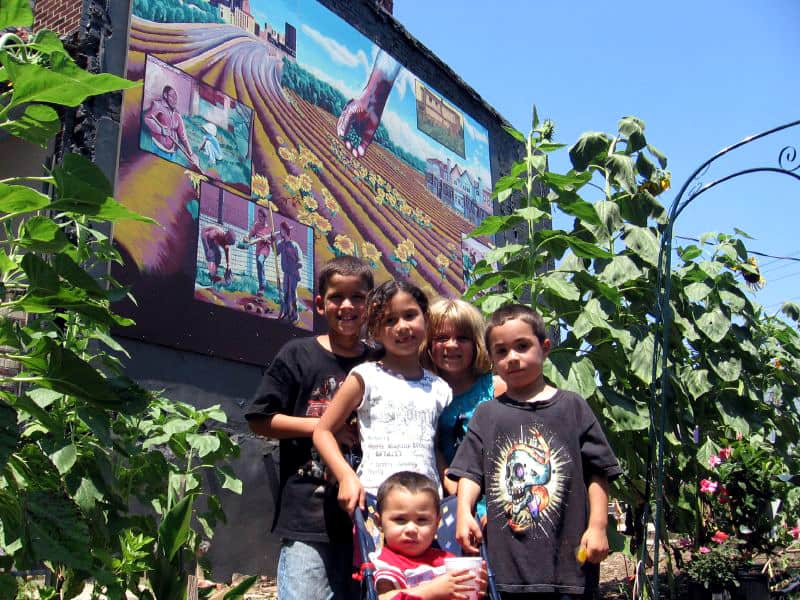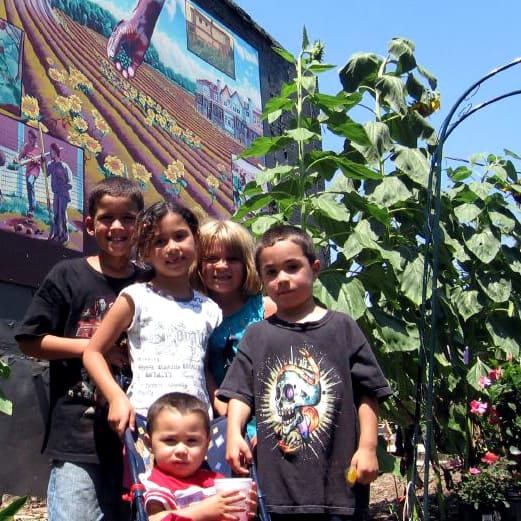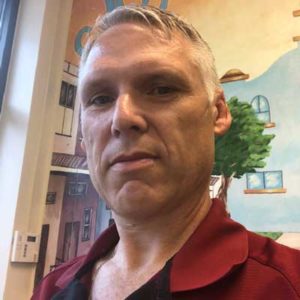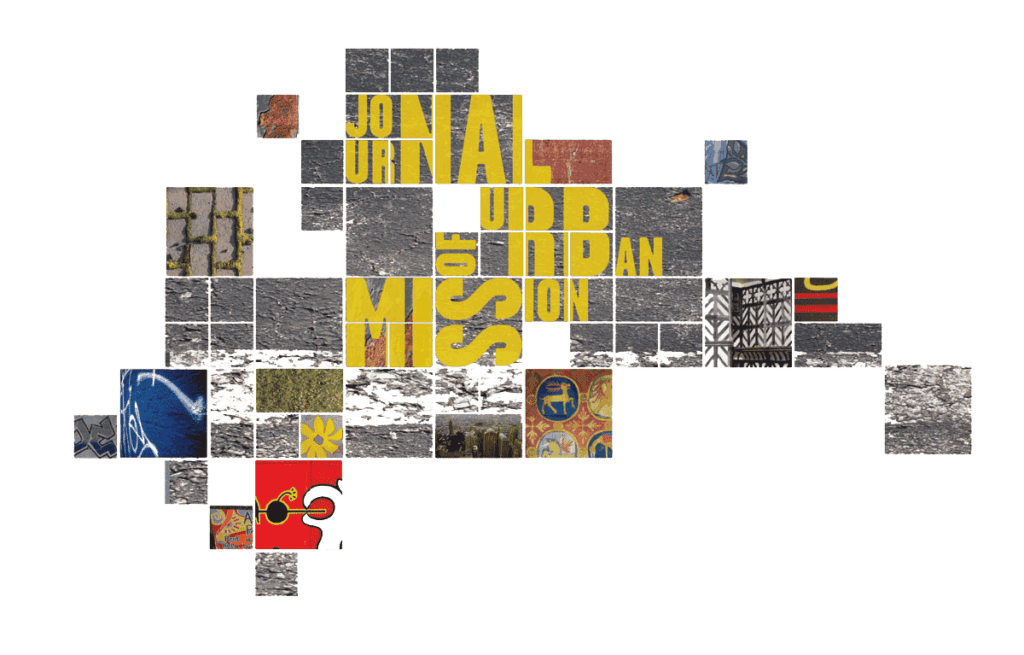The hope of most urban missionaries is to see people living in urban poverty become leaders in their own community. Once equipped with education and opportunity, instead of moving out of town, we encourage them to stay and make a difference. However, these leaders are often considered a failure by their own community if they don’t relocate. Incarnational ministers receive accolades for their “sacrifice” of living in urban poverty, but community leaders do not.

“I live amongst the dead,” said my young friend as we went out to lunch. She has lost many friends to violence and is sure she will lose many more. But it is the living who cause her the most pain. “They live without hope, without any sense of a better life,” she whispered. “I can’t raise my daughter in this place. I need a house in a nice quiet community, a place where there isn’t all this craziness.”
Jazmine was telling me why she needed to get out of our Philadelphia neighborhood. Kensington is an economically depressed urban community; formerly poor, working-class white, it experienced white flight in the 1970s and 80s and is now a predominately Latino area. It is marred with thousands of abandoned homes and dozens of abandoned factories.
I challenged Jazmine, even though I knew well I had no right to do so. My plea came from frustration. “So if people like you Jaz, people who can really make change happen, keep leaving, how can we ever hope to see things shift? You can make a difference. You can be part of real change taking place.”
Her rejoinder was a clincher. It was utterly true. “Easy for you to say, Coz. You didn’t grow up here. You’ve always had a choice. This is all I’ve ever known, and I want out.”
By the end of lunch Jazmine had promised to at least think about what change could look like if she, and others, stayed. But I know how few of the people who are able to leave make the decision to stay. This hemorrhage of community leaders to other, easier places to live is one of the most challenging issues facing frayed and struggling urban (and rural) communities.
Ironically, outsiders (people like me) are often seen by their peers as being heroes for coming into these same communities. People view us as “sacrificing” our families and our own lives for the sake of loving others. But Jazmine’s peers will consider her a failure if she doesn’t make it out.
In the eighteen years I have lived in this neighborhood, I’ve faced just about every major decision a re-locator has to face. My kids go to a local school. I’ve chosen to live in the community where I work. Like my neighbors, I endure community plagues like the lack of quality services, the injustice of the government and the violence bred by poverty.
But I will never know what it is like to grow up under the pressure to move out.
Many of my neighbors, the “urban poor,” dream of a suburban life. They imagine their kids playing outside without the threat of violence; of houses full of peace and quiet. They yearn for schools where an education is an expectation rather than an exception, and for police who come when you call, treat you with dignity, and attempt to serve you. Quite simply, they want what much of white America takes for granted; privileges it has had for decades. This desire has so ingrained itself in the psyche that in many communities, getting out to a nice neighborhood has become the ultimate benchmark of success. Finishing school, going to college, getting a good job, raising a solid family are all secondary to moving out.
Relocation cost me and mine a great deal less. One evening, I spoke at a suburban church, sharing the great stories of all the good things we do to love our neighbors. That particular night, I was accompanied by Cindy, a young member of our community. Cindy grew up in North Philadelphia, went off to a Christian college and then on to Cornell for her masters.
After my talk, I received the usual accolades: pats on the back, generous financial contributions, murmurs of “I could never do what you do!”
“You know Coz, these people think so highly of you precisely because they think so little of me and those like me. You are a hero to them simply because you chose to live where I live.”
Later, Cindy turned to me and commented bluntly: “You know Coz, these people think so highly of you precisely because they think so little of me and those like me. You are a hero to them simply because you chose to live where I live.” I knew that she was right. Complex dynamics of race, class, and power give me glory and keep her contributions faceless and unacknowledged.
There are those who do make the difficult decision to stay. Take Nes, Hector, and Tony. Nes has been a friend and coworker of mine for many years. I’ve known him since he was a teenager. He is a block captain, has a community garden, mentors young men on his block, and is the kind of person you want to have as a neighbor.
Hector cleans the graffiti off the local buildings, keeps an eye on everyone coming and going on his block, and acts as interpreter for neighbors when issues arise.
Tony has chosen to work at the local community health center as a site manager. In an organization whose management has been dominated by outsiders, Tony brings a voice that is part of the community, not only from nine to five, but twenty-four, seven.
These men are my true heroes. Most of their friends don’t get it. Why would they stay when they could leave? In this environment, it is a ludicrous choice.
I still believe that poor communities like Kensington need relocators, outsiders with certain skill sets and resources. There is a place for families like mine, allowed to dwell where we do through grace and the hospitality of those who were born here. More than that though, we need our local leaders to stay. We need them in the community. We need them leading our blocks.
Yet this demands that they give up what for most is their strongest dream—moving out. What right have I to ask another to give up a dream they have longed for when I enjoy such a privileged position both inside my community and outside? Who am I to ask someone to do what I most likely would not? I don’t really have a right to ask that of anyone.
Any day I want to I can choose to move out, to “go home,” to walk away. I am extremely conscious of this privilege because our family is currently considering a move from this Kensington home of almost twenty years back to our native Australia.
I know I have no right to ask Jazmine, or anyone else, to stay. But I keep asking because the raw truth is that without Jazmine staying, I don’t hold much hope for our community either.
Some community leaders will make the wrenching decision to give up those dreams of mobility, perhaps the most alluring idol of this culture. They will not be praised. They will not be noticed. They might even be looked down upon.
They are the most courageous leaders I know.



2 thoughts on “A Sense of Place”
Challenging!
Who among us hasn’t experienced this same dynamic! I well recall the rare handful of leaders in our church in LA that remained in the ‘hood. Only a strong sense of calling kept them there. But, at the same time, I am increasingly thinking about how the model of ministry I’ve followed in the past may have fueled the exodus as well. The well documented “brain drain” in the developing world is fueled by sending the most promising young leaders to Western universities for education; then we wonder why they don’t want to return home. I wonder how much we fuel the suburban exodus by believing that true leadership development means “higher” education. That and reproducing a program model of ministry that demands complex leadership skills and bicultural fundraising ability, which leaves most of our folks relegated to supporting the “capable” leaders and out of the center of the action. Some of our most able leaders have developed out of developing simple models like house churches; these leaders are “poorly” educated but passionately involved in touching other’s lives. They aren’t the least bit interested in escaping; God is at work in their midst.